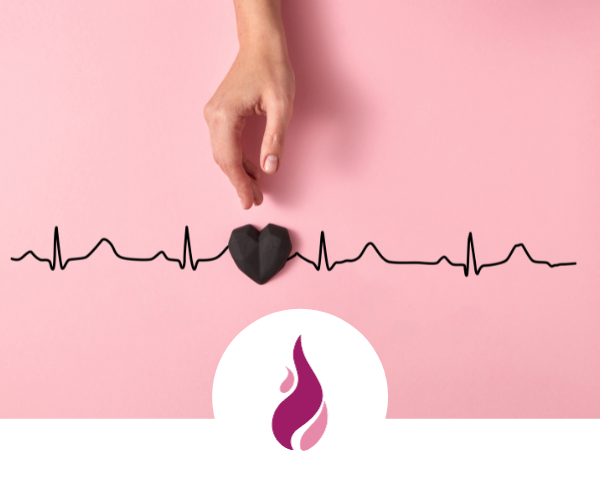Maintaining Heart Health Through Menopause: What You Need to Know

Menopause brings a wave of changes to a woman’s life, from hot flushes to brain fog. However, one aspect that often goes unnoticed is how menopause can impact heart health and it’s often something we take for granted until an issue arises.
So, why does menopause affect our hearts? It’s because oestrogen, the hormone that fluctuates and diminishes during perimenopause, acts as a protective shield against coronary artery disease. Oestrogen plays a crucial role in regulating cholesterol levels and preventing the build up of fatty plaques within artery walls. As oestrogen levels decline, the risk of blood vessels narrowing and high blood pressure increases. Cholesterol levels can also be affected, with LDL (low-density lipoprotein) rising and HDL (high-density lipoprotein) decreasing.
Hormone Replacement Therapy (HRT) is one option to replace oestrogen, although it’s not suitable for everyone. Deciding on HRT should be a personal choice made with the guidance of a medical professional, taking into account individual health conditions, such as a history of blood clots. Fortunately, the risk of blood clots associated with HRT can be reduced by using patches or gels rather than oral tablets. Recent evidence also dispels myths about HRT and heart attacks, showing that women on HRT do not face a higher risk of fatal heart attacks compared to those not using HRT.
For those experiencing early menopause before the age of 40, it’s essential to discuss HRT and other suitable medications with your GP to safeguard your heart during the years when oestrogen’s protective effects would have been in play.
Know Your Numbers: A Health MOT
Monitoring your health is vital. Get your cholesterol levels checked (many pharmacies offer this service). Even if you maintain a healthy diet, some individuals have high cholesterol due to a genetic condition passed through families known as familial hypercholesterolemia.
High blood pressure doesn’t always display obvious symptoms, making regular blood pressure checks crucial. Checking your blood pressure is a simple task, but the information it provides is invaluable for preventing cardiovascular disease.
Palpitations, or a racing heart sensation, may occur during menopause but are often harmless. Nevertheless, it’s advisable to consult your GP if you experience palpitations to receive reassurance and explore strategies to promote heart health through menopause and beyond.
The Power of Physical Activity
Engaging in physical activity is a key pillar of heart health. Any form of physical activity provides benefits, but aerobic exercise stands out as particularly effective. It helps you maintain a healthy weight, reduces the risk of high blood pressure, stabilises blood glucose levels, and lowers cholesterol levels.
The recommended minimum is 150 minutes per week of moderate exercise, such as brisk walking, or 75 minutes per week of vigorous exercise. You can break this down into manageable chunks. The key is to raise your heart rate, breathe harder, and feel warmer. Aerobic exercises include running, swimming, dancing, and stair-climbing, so find something you enjoy and make it part of your daily routine.
Nutrition for a Healthy Heart
To keep cholesterol levels in check, cut out ultra-processed foods, which often contain trans fats. Replace saturated fats with polyunsaturated fats found in sources like olive oil, avocados, and nuts.
Aim for a diverse diet rich in colourful vegetables and fruits, as they are packed with antioxidants, fibre, vitamins, and minerals that support heart health.
Reducing salt intake can help maintain healthy blood pressure levels so be vigilant about hidden salt in foods, such as take-away meals and even breakfast cereals. Use the traffic light labelling system to quickly identify foods high, medium, or low in saturated fat, sugar, or salt.
Before making significant dietary changes, especially if you have underlying health conditions or concerns, consult with a healthcare professional or registered dietitian. Your heart deserves the best care, and these proactive steps can help you navigate menopause while keeping your cardiovascular health in check.